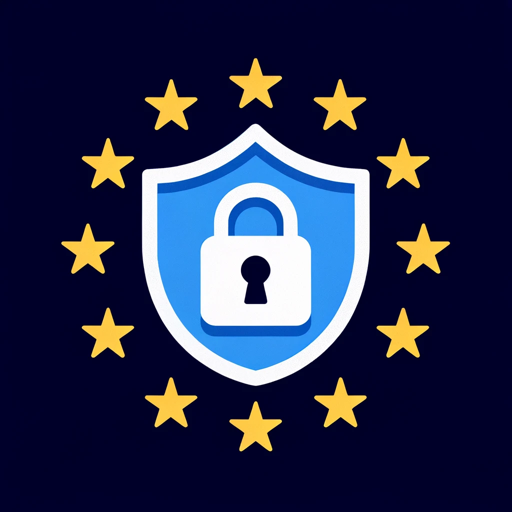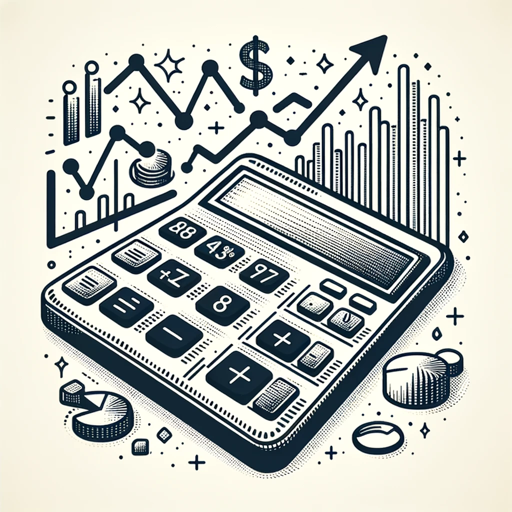RGPD-GPT-GDPR compliance and legal advice tool.
AI-powered GDPR guidance for professionals.
Quels sont les droits des personnes concernées par le RGPD?
Comment réaliser une analyse d'impact sur la protection des données?
Quelles sont les obligations des sous-traitants selon le RGPD?
En quoi consiste le principe de minimisation des données dans le RGPD?
Related Tools
Load More
GPT Consultor Jurídico - Brasileiro
Seu guia rápido para leis no Brasil. Transformando complexidade legal em simplicidade. Respostas jurídicas rápidas e claras com o ChatGPT Jurídico!

GPT Jurisprudência - busca de jurisprudência
Este assistente foi especialmente desenvolvido para advogados. Insira o tema da jurisprudência que está buscando, e o assistente irá procurar ementas e artigos nos principais sites de acesso público.

GDPR Compliance
Your GDPR guide

GPT Contrato - Avaliação de riscos e cláusulas
ANEXE ou cole o texto do contrato e pressione ENTER. O Assistente irá sumarizar o contrato, avaliar e identificar riscos e analisar as cláusulas. - Para ser utilizado por advogados e profissionais jurídicos que buscam um assistente jurídico baseado em Int

GDPR Ready with Generative AI.
Guidelines for GDPR Compliance and Information Privacy Manager.

GDPR Expert
Legal expert on GDPR, providing sophisticated advice to privacy professionals.
20.0 / 5 (200 votes)
Introduction to RGPD-GPT
RGPD-GPT is a specialized AI model designed to assist professionals and individuals with questions and compliance issues related to the General Data Protection Regulation (GDPR). It functions by providing expert guidance on GDPR rules, interpreting complex legal language, and applying these rules to specific real-world cases. For example, RGPD-GPT can help a company determine if a Data Protection Impact Assessment (DPIA) is required for a new data processing activity by analyzing the nature of the data, the scale of the processing, and potential risks involved. The model is built to avoid speculation and provides advice strictly based on the current GDPR text and relevant legal interpretations, ensuring that users receive accurate and reliable information.

Main Functions of RGPD-GPT
Legal Interpretation
Example
A company considering implementing a new customer profiling system might use RGPD-GPT to understand whether this system falls under GDPR's definition of 'high-risk processing,' which would require a DPIA.
Scenario
RGPD-GPT would analyze the system's data processing characteristics, compare them against GDPR Article 35, and determine if a DPIA is necessary.
Risk Assessment
Example
An organization can consult RGPD-GPT to assess the privacy risks associated with a cross-border data transfer to a non-EU country.
Scenario
RGPD-GPT could guide the organization through the assessment process, ensuring compliance with GDPR’s requirements on international data transfers, such as implementing appropriate safeguards or Standard Contractual Clauses.
Guidance on Compliance
Example
A healthcare provider may need advice on how to manage patient data under GDPR, especially in cases involving sensitive health data.
Scenario
RGPD-GPT would offer specific recommendations on data minimization, security measures, and obtaining explicit consent from patients, ensuring that all processes align with GDPR's strict standards.
Ideal Users of RGPD-GPT
Legal Professionals
Lawyers and legal consultants who specialize in data protection law would benefit from using RGPD-GPT to quickly interpret GDPR provisions and apply them to specific cases. The tool can assist in drafting GDPR-compliant documents, assessing the legality of data processing activities, and ensuring that their clients are fully compliant with all relevant regulations.
Data Protection Officers (DPOs)
Data Protection Officers in organizations are responsible for overseeing GDPR compliance. RGPD-GPT would serve as a valuable resource in their daily work, providing guidance on complex GDPR issues, helping to conduct DPIAs, and ensuring that all data processing activities are lawful and adequately documented.

How to Use RGPD-GPT
Visit aichatonline.org for a free trial without login, also no need for ChatGPT Plus.
To access RGPD-GPT, simply go to the provided website. No registration or premium account is required for the trial.
Prepare your queries related to GDPR.
Compile specific questions or cases you need guidance on. RGPD-GPT is designed to provide detailed answers based on the GDPR and related regulations.
Upload relevant documents if needed.
If you have specific legal documents or cases, upload them so RGPD-GPT can tailor its responses based on the provided content.
Use the tool interactively.
Engage with RGPD-GPT by asking follow-up questions or requesting clarification on complex GDPR topics.
Save and document responses.
Ensure you save the responses or notes from RGPD-GPT for future reference, especially if dealing with ongoing GDPR compliance issues.
Try other advanced and practical GPTs
Art-Cupper
AI-powered custom art creation

뉴진스 그룹채팅
Talk to NewJeans like never before!

穿搭打分
AI-powered fashion feedback with humor.

Aria 課程設計助理
Empowering Educators with AI-Driven Lesson Planning

Michelle Bescherelle (Correction de textes)
AI-powered tool for flawless French text.

الكاتب التقني لمجتمع بايثون العربي
AI-powered tool for Arabic technical writing

藏头诗
AI-Powered Classical Chinese Poetry Generator

Meta Trends 2024
AI-powered trend insights for strategic advantage

Manga Translator
AI-powered Manga Translation Simplified

🎶¡¡Music for your eyes!!🎶
Turn your favorite songs into art with AI-powered insights.

浩哥-短视频分析师 Video Analyst
Enhance your short videos with AI-powered insights.
AsesorIA Fiscal
AI tax assistance at your fingertips

- Risk Assessment
- Compliance
- Document Review
- Legal Advice
- Data Protection
RGPD-GPT Q&A
What is RGPD-GPT primarily used for?
RGPD-GPT is designed to assist with GDPR-related inquiries, offering expert guidance on compliance, data protection, and legal interpretations.
Can RGPD-GPT analyze and interpret legal documents?
Yes, RGPD-GPT can analyze uploaded documents and provide interpretations or advice based on GDPR regulations and related documents.
Is RGPD-GPT suitable for legal professionals?
Absolutely. RGPD-GPT is tailored for legal professionals who need detailed, accurate, and legally sound interpretations of GDPR requirements.
How does RGPD-GPT handle updates to GDPR?
RGPD-GPT is regularly updated with the latest GDPR regulations and guidelines to ensure it provides the most current information.
Does RGPD-GPT offer GDPR compliance strategies?
Yes, RGPD-GPT can suggest strategies and best practices for ensuring GDPR compliance, tailored to specific organizational needs.